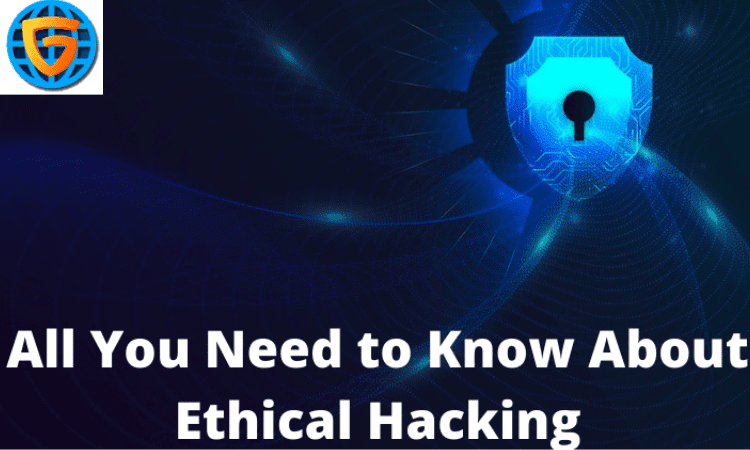We have all watched those adrenaline-fuelled shows where cybercriminals have been stopped by cool and intelligent experts who are deft with their skills on their specialized computers. Ever wondered who these people are?
Who are ethical hackers?
Ethical hackers, as the name suggests, are people who know hacking but use their skills for lawful and ethical reasons. Ethical hackers, sometimes known as "white hats," are trained professionals who do these vulnerability scans. They contribute to a firm's overall security by being vigilant. The goal of ethical hacking differs from criminal hacking in that it requires prior clearance from the organization or proprietor of the IT resource.
What exactly is ethical hacking?
A permitted endeavor to acquire entry to the computer system, software, or information is referred to as ethical hacking. Mirroring the techniques and behaviors of malevolent attackers is part of putting out an acceptable hack. This approach aids in the detection of security flaws, which can subsequently be addressed before a cybercriminal has the ability to exploit these.

What are the most important ethical hacking principles?
Ethical hackers adhere to four important protocol principles:
• Maintain your legal status. Before downloading and executing a security evaluation, make sure you have the required permissions.
• Determine the scope of the project. Establish the assessment's range to ensure that the ethical hacker's activity is lawful but within the group's allowed limitations.
• Security flaws should be reported. All weaknesses uncovered during the evaluation should be reported to the organization. Give recommendations for fixing those security flaws.
• Information security must be respected. Ethical hackers might well be forced to sign a non-disclosure contract in conjunction with other restrictions and limits placed by the inspected organization, based on the importance of the material.
How exactly are these hackers different from cybercriminals?
Ethical hackers apply their skills to help firms safeguard and enhance their systems. They include a vital resource to these companies by checking for known vulnerabilities that could contribute to a data leak.
The found weaknesses are reported to the organization by an ethical hacker. They also offer advice on how to fix the problem. In very many circumstances, the ethical hacker conducts a re-test with the firm's permission to assure that the risks have been thoroughly addressed.
For monetary benefit or professional notoriety, malicious hackers seek unauthorized access to the information (the more critical, the better). For pleasure, negative publicity, or financial reward, some cybercriminals vandalize web pages or destroy computer systems. The strategies adopted and flaws discovered are not reported to the organization by these hackers, who simply look for other motives.
What issues can ethical hacking reveal?
Ethical hacking seeks to imitate an intruder while examining the protection of a firm's IT infrastructure. They are looking for network attacks against the victim while doing so. The first objective is to conduct an investigation and find data as necessary.
Once the unauthorized user has gathered enough data, they will use it to seek for flaws in the property. They use a blend of user and computable screening to complete this evaluation. Even advanced systems may be susceptible to complex prevention methods.
They don't stop there when it comes to finding flaws. Loopholes are used by ethical hackers to demonstrate how a malevolent attacker might execute a vulnerability.
The following are amongst the most prevalent flaws uncovered by ethical hackers:
• Attacks by injection
• Registration issues
• Misconfigurations in safety
• Materials with significant problems should not be used.
• Exposed sensitive information
Ethical hackers submit a proper report when the assessment session is completed. Actions to exploit the disclosed weaknesses, as well as methods to fix or alleviate them, are included in this literature.
What qualifications and abilities must an ethical hacker have?
An ethical hacker must be well at a variety of computer technologies. They frequently specialize in establishing skills and knowledge (SME) in a certain field of penetration testing.
Every ethical hacker should have the following:
• Scripting linguistic competence.
• Knowledge of hardware and software.
• A deep understanding of networking is required.
• A strong foundation in data security concepts.
Therefore, while this field sounds interesting and competitive, it is also very comprehensive and requires constant up-gradation of one’s skills. If you think you have what it takes to be an ethical hacker, you can get certified to improve your marketability.
Today ethical hackers have meticulously built a reputation for their skills and ethical behavior in the industry. Enroll in GICSEH today for the best training in ethical hacking course in Noida and become a smart ethical hacker.
Join GICSEH today!!